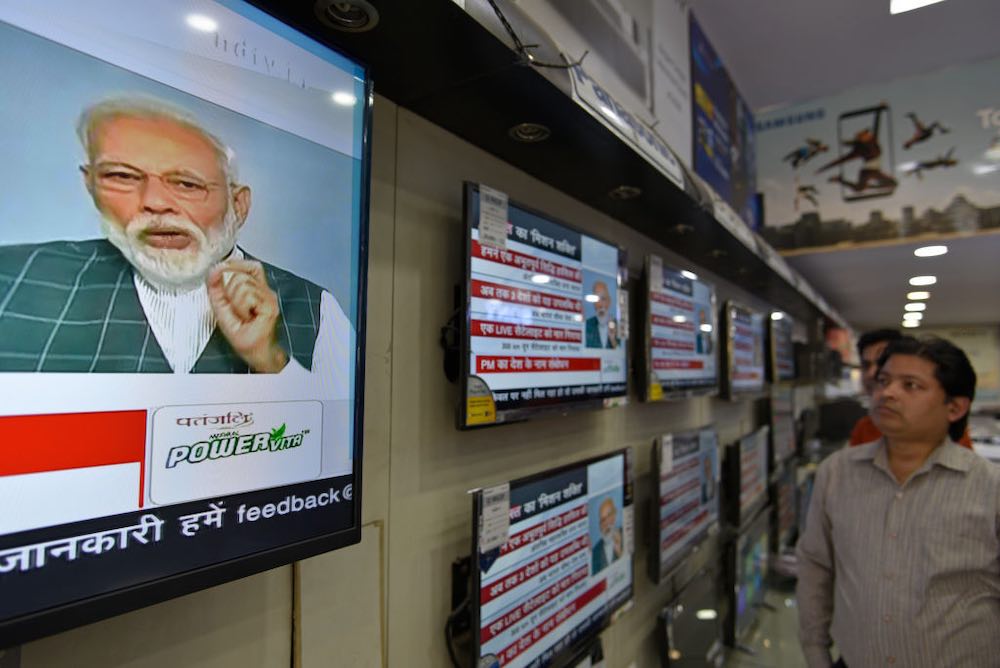Last month, scientists of India’s Defence Research and Development Organisation carried out an anti-satellite missile test, as a part of the mission codenamed Shakti (Power), and successfully destroyed one of the two satellites put into the low-earth orbit by the Indian Space Research Organisation sometime earlier.
The satellite was destroyed at a distance of 300 kilometres within three minutes of the launch of the interceptor missile, using its kinetic energy in a “hit-and-kill” mode. No explosives or other projectiles were used.
Opponents see the timing and the flourish with which the success of Mission Shakti was announced by the Prime Minister himself as a brazen attempt to swing the votes in favour of the ruling coalition.
With this India became the fourth country in the world, after the United States, Russia and China, to have acquired the capability. The Press Information Bureau described the test as a demonstration of the nation’s capability to develop indigenous weapon systems to defend its assets in the outer space and a vindication of the “robust nature” of the defence research programs.
The international community has taken it in their stride, except for some doubts being expressed about India’s claim that the debris caused by the test will vanish in about 45 days. China, generally quick to dismiss India’s feats, reacted with caution with its foreign ministry expressing the hope that “each country will uphold peace and tranquillity in outer space”.
There is no reason for any country to entertain any apprehension on that count. The anti-satellite missile test did not violate any international law or treaty and, as Prime Minister Narendra Modi said immediately after the test, the action was not directed against any country. India surely has a right to develop the capability to safeguard its interests, which is what Mission Shakti was all about.
In a separate statement, India’s Ministry of External Affairs said that India has no intention of entering into an arms race in the outer space. This was a reaffirmation of India’s commitment to the international Outer Space Treaty of 1967 – ratified by India five years later in 1972 – that prohibits weapons of mass destruction in the outer space.

In the months ahead, Mission Shakti could revive and reinforce the demand for setting up an Indian aerospace command, which has been on the backburner for a long time. There are reports of a joint-services “Space Cell” being set up more than a decade back to co-ordinate space-based applications, but the details remain sketchy. With India now emerging as a potential player in the outer space, possessing the technology to take out enemy satellites during any future conflict, it would be difficult to kick the can down the road on the issue of establishing a formal, full-fletched command structure.
Even if the political will can be found, such a proposal would need to navigate United Nations-backed efforts to prevent an arms race in the outer space. And the financial cost of raising an aerospace command, which will inevitably get linked with calls for a cyber command, could also prove an obstacle (a problem India has also faced in efforts to raise the mountain strike corps to its full strength in recent years).
Back home, the test has raised the hackles of the political parties opposed to the Bharatiya Janata Party-led National Democratic Alliance government. With the seven-phase general elections scheduled to be begin on 11 April, they see the timing of the test and the flourish with which the success of Mission Shakti was announced by the Prime Minister himself as a brazen attempt to swing the votes in favour of the ruling coalition, and violating the Election Commission’s Code of Conduct.
VK Saraswat, a former chief of the Defence Research and Development Organisation, added to the controversy after he said all the building blocks required to put together an ASAT missile system had been developed back in 2012 but the program did not get the go-ahead from the Indian National Congress-led United Progressive Alliance government at the time. The then national security advisor and former foreign secretary Shiv Shankar Menon denied Saraswat’s claim but the latter has remained insistent, while Congress has also sought to claim the credit.
Such a verbal slugfest is not uncommon in the rambunctious political discourse in India, especially in the run up to the elections to various legislative bodies. However it is doubtful though that Mission Shakti will have any decisive impact on voting patterns.
The successful conduct of the test may appeal to the nationalistic fervour of a partisan section of the electorate. But more substantive electoral issues concerning employment and economic development seem to matter more to the non-partisan Indian voters, especially the 45 million young voters who will vote for the first time in the coming elections to decide their future.

